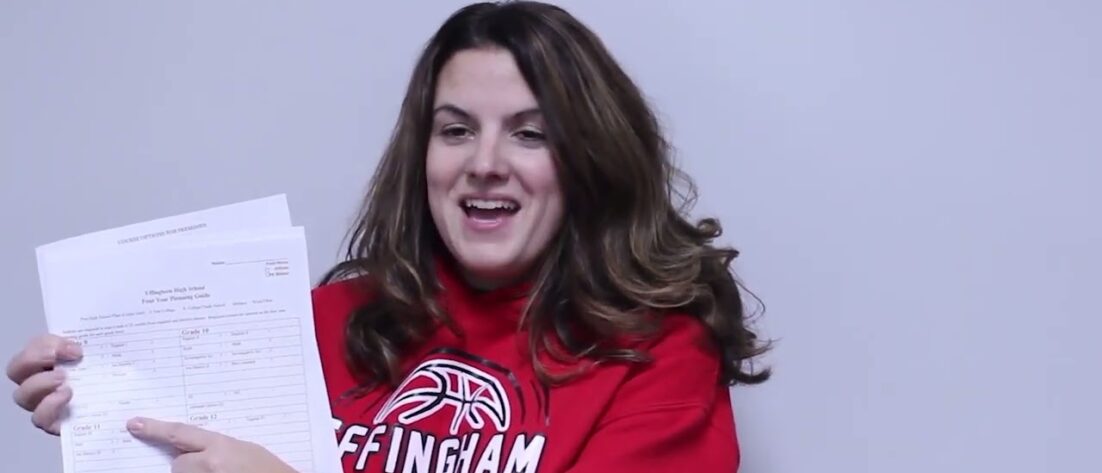Every week, I try to pick stories from the educational world that I feel could have broader implications across our profession (or seem crazy or questionable). This week’s news stories from the education world share how:
- New Hampshire teachers are getting paid to teach chess, with the state providing funding for training and equipment (is this a good use of federal funding?),
- Rhode Island’s realignment of graduation requirements created with input from the community ensures all students will graduate ready for careers or college (good ideas here we should all consider)
- Kentucky’s alternative path to a teaching credential doesn’t require a bachelor’s degree (is this the right solution for a teacher shortage?).
And now a brief announcement:
By the way, Jen and I will be featured guests on another podcast called Behind the Mic, out September 1st on the Education Podcast Network. This network plays host to a myriad of terrific education-related podcasts that cover a variety of topics from administration to professional development. Chris Nesi, the Network’s founder, is interviewing the hosts of the network’s various shows from the EPN. Jen and I had a great time talking with Chris about the “behind the scenes” of “Transparency in Teaching.” I hope you’ll check out “Behind the Mic” and all the other great education podcasts on the Education Podcast Network
And now, back to the regular program
Here’s what you’ll hear in today’s episode:
Getting paid to play
The state of New Hampshire will continue a program aimed at training educators to teach chess in schools. This initiative seeks to incorporate chess as part of the high school curriculum, recognizing the game’s educational benefits. The program’s objective is to improve critical thinking, problem-solving, and strategic skills among students through chess instruction. Educators hope to enhance students’ cognitive abilities by integrating chess into the classroom, ultimately contributing to their overall academic and personal development.
Graduation requirements get a revamp
Rhode Island is implementing new graduation requirements influenced by community input. The changes aim to provide students with a more well-rounded education, including financial literacy, coursework tailored to career interests, and civic engagement components. The state’s approach reflects a collaborative effort to align education with the needs and aspirations of students, equipping them with essential skills for their future success. The decision showcases Rhode Island’s commitment to responsive and community-driven education policy.
No bachelor’s? No problem!
Kentucky’s Option 9 offers classified school employees an alternative pathway to obtain a teaching credential without a bachelor’s degree. It recognizes the expertise and experience of these employees, allowing them to become certified teachers through a combination of relevant work experience, coursework, and assessments. The program aims to address teacher shortages and promote diversity in the educator workforce while providing dedicated individuals within the school community an opportunity to transition into teaching roles. By offering this option, Kentucky seeks to enhance the pool of qualified educators and improve the overall quality of education in the state.
Thank you for spending part of your day with us! We are so grateful for our loyal listeners! If you know of others who might enjoy these podcasts, please send them to our show. Because of your efforts, we continue to grow and find our place in the podcastosphere!
Please leave us your thoughts and ideas in the comments section. Visit our website, TransparencyinTeaching.com, for more shows and posts about all things education.
Here are all the resources used to put together this episode:’’
- State to continue program training educators to teach chess
- Chess in Education
- Siskel and Ebert: How They Became Movie Critics and Their Impact on Hollywood
- ‘The Queen’s Gambit’ is sparking a surge of interest in chess.
- Sales Spikes for Chess Books and Sets Follow Debut of “Queens Gambit” – The NPD Group
- Chess in Armenia – Wikipedia
- ‘Everybody at School Wants to Play’: Chess Is Trendy Again
- Students’ Perceptions of the Benefits of Scholastic Chess Instruction
- New Rhode Island Graduation Requirements Driven by Community Feedback
- State Minimum High School Graduation Requirements – High School (CA Dept of Education)
- Golden State Seal Merit Diploma Eligibility – California Assessment of Student Performance and Progress (CAASPP) System (CA Dept of Education)
- State Seal of Biliteracy – Resources (CA Dept of Education)
- State Seal of Civic Engagement – History-Social Science (CA Dept of Education)
- High School Graduation Requirements: State Profiles
- Diploma Endorsements by State and Tracking Student Service Hours with Clever
- State Education Professional Standards Board approves alternative certification – and four NKY districts are participating – NKyTribune
- How To Become A Teacher In Florida
- Teaching Requirements By State ⭐⭐⭐







